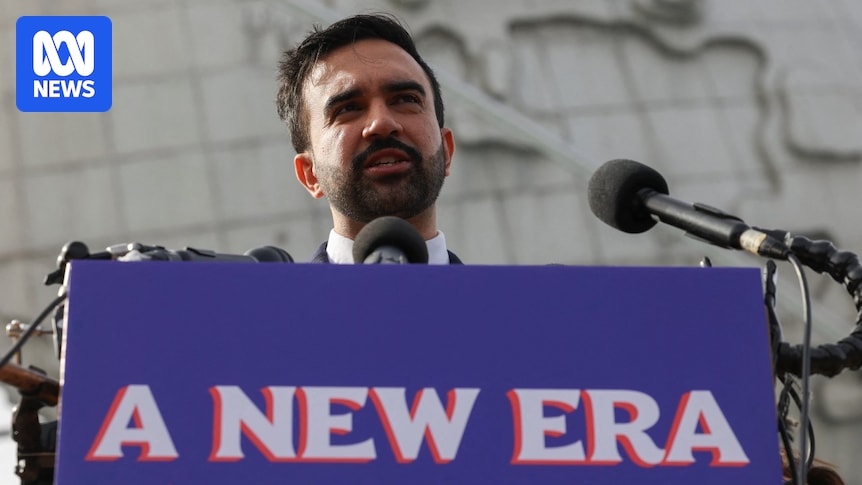
The blistering rise of New York City’s new mayor, Zohran Mamdani, has captured global attention. The self-described democratic socialist ran on promises of rent controls and taxing the rich, striking a chord with voters beyond the city. This has led to a surge in Australians and others worldwide inquiring about the new mayor and US politics.
Zohran Mamdani, 34, who was born in Uganda to Indian parents, was elected mayor of New York City on Tuesday. Before his mayoral campaign, Mamdani served as a state politician and worked as a foreclosure prevention counselor. His campaign gained traction through viral social media videos and a robust grassroots movement. He promised to raise taxes on corporations and the wealthy to fund policies such as rent freezes, free child care, and free city buses. Mamdani ran as a Democrat and secured roughly 50% of the votes, a significant victory over his nearest competitor, former New York governor Andrew Cuomo, who ran as an independent and trailed by about 8%.
Global Reactions to Mamdani’s Victory
Mamdani’s win is significant for several reasons—he is the first Muslim mayor of New York City and the youngest in over a century. His rise has inspired politicians and voters worldwide seeking to counteract the surge of right-wing politics. In Europe, parties like The Left in Germany and the Greens in Britain are hoping to gain momentum from his success. They have indicated they will not dilute their policies to appeal to centrist voters.
Zack Polanski, the first Jewish and openly gay leader of the Green Party of England and Wales, stated, “Hope has triumphed over hate. This is important—not just for New York but globally. It’s about improving lives and addressing inequality.”
Germany’s Left party echoed similar sentiments. Party head Jan van Aken remarked, “Rents are unaffordable, and prices for essentials are rising faster than wages. We are in close contact with Zohran Mamdani and his team, learning from each other. His campaign is a blueprint for our elections in Berlin.”
Implications for the American Political Climate
The New York City mayoral race was not the only significant election on Tuesday. In Virginia and New Jersey, gubernatorial elections also resulted in Democratic victories, providing the party with renewed momentum. Despite former President Donald Trump’s declining approval ratings, the Democratic Party’s success in these elections suggests a weakening of Republican support.
An AP Voter Poll found that 36% of Virginia voters and 39% of New Jersey voters cited opposition to Trump as a factor in their voting decision.
However, Democratic strategist Antjuan Seawright cautioned against over-interpreting these results as indicative of future elections, emphasizing the need to maintain voter engagement.
Understanding Political Roles and Parties
In the United States, mayors, governors, and presidents represent the highest-ranking officials at city, state, and federal levels, respectively. Mayors oversee city operations, governors lead state governments, and presidents head the federal government and armed forces.
The two major US political parties are the Democrats, represented by blue and known for liberal policies, and the Republicans, represented by red and known for conservative policies. Unlike Australian politics, US parties do not have single leaders, but they do elect leaders for Congress, with titles such as ‘majority leader’ and ‘minority leader’ based on party control.
Defining Democratic Socialism
Zohran Mamdani identifies as a democratic socialist, a term that combines socialism—a system advocating for wealth distribution and government control of resources—with democratic processes. Democratic socialists believe in abolishing capitalism through electoral means, rather than merely regulating it.
Mamdani’s victory and political stance offer a lens into the evolving landscape of American and global politics, highlighting a shift towards addressing economic inequality and advocating for progressive policies.







